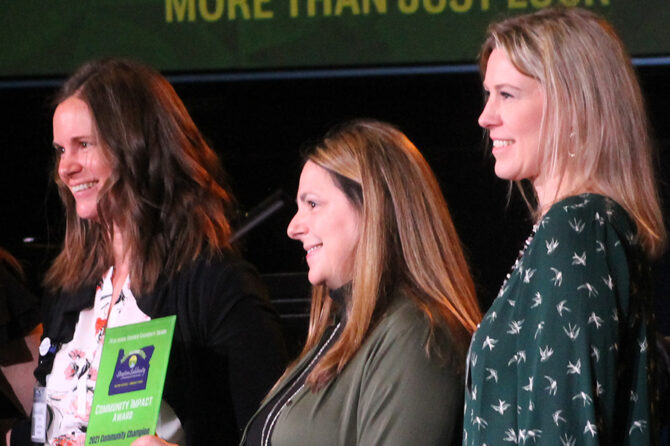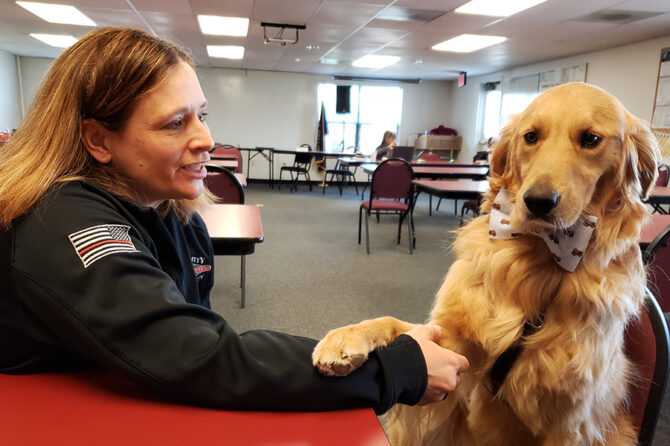The gradual slowing of COVID-19 cases across the country and the equally gradual reopening of some of the state, it may be a good time to start thinking about what is to come.
“We are in a great pause, which is a painfully beautiful gift,” Sahaji Fisher – a licensed acupuncturist, herbalist, registered nurse and owner of White Oak Wellness in Silverton – said of the current pandemic state.
“I don’t know what lifting regulations is going to mean for your community yet,” she acknowledged. “I myself am taking things really slow. We need to look out for each other over the coming months. Limiting exposure, especially for at-risk folks and elders is important.”
But even for those who are not as considered vulnerable to COVID-19, it might be a good time to double-down on healthy habits – or to get them started – in preparation for the fall and winter months to come.
“Preventative care is important because it allows you to learn about your body,” Fisher said. “It gives you an opportunity to tune into the messages your body is sending you, listen, and then respond appropriately. Our bodies give us lots of communications and signals if we take the time to listen. Prevention doesn’t mean that we don’t get stressed or upset or overeat. Prevention is knowing why we are doing those things and then working to come back into balance. It’s not about being perfect, it’s about being realistic and aware of what’s actually happening.
“Preventative medicine is about taking responsibility for as much of your own health as you can and also receiving help from others who support you in that. I like to think of preventative medicine as a way of living, as a way of listening. This is going to be important in the coming months because we are moving into uncharted territory as a community.”
Fortunately, summer is one of the of the best times to establish healthy habits including eating healthy foods, drinking plenty of water and increasing exercise.
“Please don’t eat ice cream all summer!” Fisher laughed. “I’m joking, but not joking. Our bodies respond to the cycles of nature. Summer is an incredible time to fortify our bodies, eat lots of clean healthy food and prepare for the rest and dark of winter. Summer is about expansion and growth both in nature and in ourselves.”
To that end, Fisher recommends every person, no matter what their current health status, focus first and foremost on establishing healthy digestion. That includes drinking water upon waking and then focusing on eating healthfully –and mindfully – throughout the day.
“One of the most comprehensive ways to bolster the immune system is to bolster the digestion,” Fisher said. “The digestion is a huge part of health, and we don’t want to over-burden our system with sugar, processed dairy, greasy and processed foods. These things create phlegm in the body, which creates heaviness and sluggishness in the digestion, especially in a damp climate like we have in Oregon come winter. What we do in the summer is greatly reflected in our bodies in the winter.”
And because no one is entirely certain what the status of the current pandemic will be come winter, increasing immune function is important – especially for those in the higher risk category.
“If someone has a pre-existing condition, I think this is a big opportunity to support yourself and soften into knowing that we are tender,” Fisher said. “I myself have preexisting conditions that make me more susceptible to COVID-19.”
But by utilizing breathing exercises and mindfulness and stress reductive practices as well as speaking with a healthcare provider about possible herbal, vitamin or dietary supplements the effects of illnesses like the coronavirus could be lessened.
“There are so many things you can do to fortify your body and build resiliency and adaptability,” Fisher said.
And for those who have already become infected with the virus and may be experiencing some lingering symptoms, there are ways to help mitigate the effects, starting with compassion.
“If you are someone who did get sick, you didn’t do anything wrong,” Fisher stressed. “I’m finding that some people I’ve talked to who have been sick are scared to talk about it because of the fear around it in general. The healthiest of people can get COVID. Yes, some people are more susceptible, but no one is guaranteed to not get it. I hope more folks will start sharing their stories about being sick so that we can learn from one another and support each other. Viruses and bacteria have been here on planet Earth a very long time. We will continue to see them express in different ways. While fear is very real and palpable, let’s engender hope and adaptability together.”
Mental health also is a key part of preventative healthcare – and one that suffers most during periods of social distancing and emotional upheaval.
“Mental and emotional health in times like these is all encompassing,” Fisher stressed. “I hope that everyone reading this knows deep inside that they are not alone, that we are all one human collective on a wild journey. My hope and prayer is that we can advocate for each other, lift one another up and find a way forward with everyone, together.”
Consult your healthcare provider for what practices are best for you.
Practices to strengthen overall wellness and immune system
• Plant a garden – food is medicine
• Eat clean and healthy – real, homemade food with ingriedents you can pronounce
• Bolster the digestion
– Drink warm water upon waking and scrape the tongue
– Eat sitting down, chew thoroughly and relax
– Be mindful of bowel movements – one a day is key
• Get good sleep
• Laugh
• Touch is important
– Place a hand on your heart, your face or your core and say self-affirmations
• Regulate your day – nature thrives on rhythms
• Check and maintain good Vitamin D levels
• Speak with a healthcare provider about vitamins, herbs or supplements
• Move your body
• Learn about herbs and wild foods – many have antiviral or antibacterial properties
• Engage in breathing and mindfulness exercises – try the Mindfulness Based Stress Reduction program created by Jon Kabat
• Practice kindness – check in with friends and neighbors as schools and businesses reopen and stress levels increase
• Be mindful of consuming alcohol and / or cannabis as coping mechanisms

